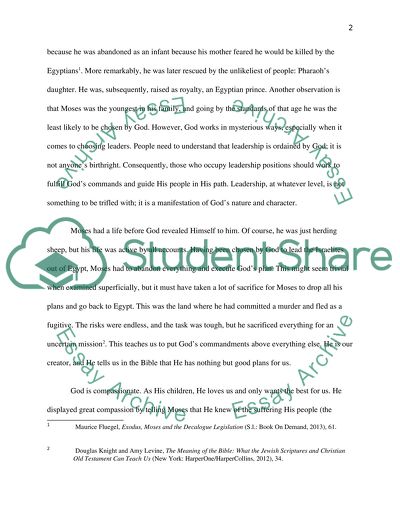Cite this document
(“Exodus 3 Essay Example | Topics and Well Written Essays - 1000 words”, n.d.)
Exodus 3 Essay Example | Topics and Well Written Essays - 1000 words. Retrieved from https://studentshare.org/religion-and-theology/1677095-exodus-3
Exodus 3 Essay Example | Topics and Well Written Essays - 1000 words. Retrieved from https://studentshare.org/religion-and-theology/1677095-exodus-3
(Exodus 3 Essay Example | Topics and Well Written Essays - 1000 Words)
Exodus 3 Essay Example | Topics and Well Written Essays - 1000 Words. https://studentshare.org/religion-and-theology/1677095-exodus-3.
Exodus 3 Essay Example | Topics and Well Written Essays - 1000 Words. https://studentshare.org/religion-and-theology/1677095-exodus-3.
“Exodus 3 Essay Example | Topics and Well Written Essays - 1000 Words”, n.d. https://studentshare.org/religion-and-theology/1677095-exodus-3.


